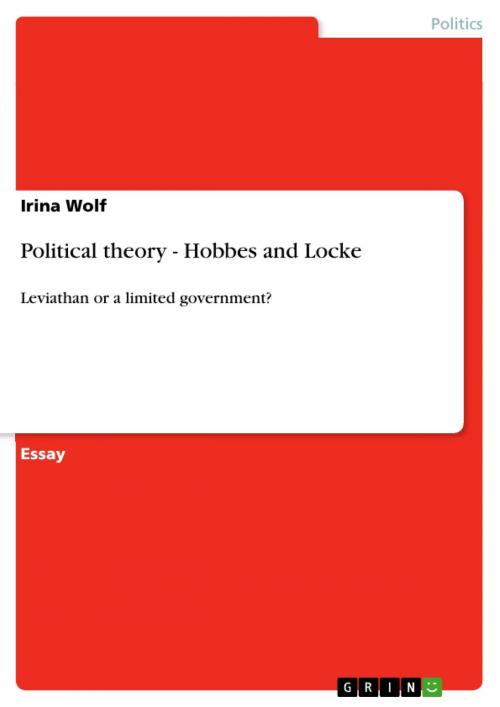Political theory - Hobbes and Locke
Leviathan or a limited government?
Nonfiction, Social & Cultural Studies, Political Science, Politics, History & Theory| Author: | Irina Wolf | ISBN: | 9783640371341 |
| Publisher: | GRIN Publishing | Publication: | July 10, 2009 |
| Imprint: | GRIN Publishing | Language: | English |
| Author: | Irina Wolf |
| ISBN: | 9783640371341 |
| Publisher: | GRIN Publishing |
| Publication: | July 10, 2009 |
| Imprint: | GRIN Publishing |
| Language: | English |
Essay from the year 2001 in the subject Politics - Political Theory and the History of Ideas Journal, grade: A, American University of Central Asia, course: Introduction to Political Theory, language: English, abstract: It is interesting that some philosophers write books not to express the beliefs that they are strongly convinced of but just to give a reasonable explanation of the happening events and adjust their deliberations to the appropriate place and time. However, what is more fascinating is when two political thinkers living at the same century and at the same country perceive things in different ways. That is understandable as everybody has his/her own life experience, thoughts, and ideas. Anyways, let's analyze works of Thomas Hobbes 'Leviathan' and 'The Second Treatise of Government' of John Locke to distinguish main points that made those philosophers come to the different conclusions even if they both began their discussions from the same point. Both political thinkers start from the idea that all people live in a state of nature until they come to the point when they voluntarily create a social contract among themselves giving some power to the central authority for some purposes. For Hobbes that authority is an absolute monarchy, for Locke that is a limited government. Why?
Essay from the year 2001 in the subject Politics - Political Theory and the History of Ideas Journal, grade: A, American University of Central Asia, course: Introduction to Political Theory, language: English, abstract: It is interesting that some philosophers write books not to express the beliefs that they are strongly convinced of but just to give a reasonable explanation of the happening events and adjust their deliberations to the appropriate place and time. However, what is more fascinating is when two political thinkers living at the same century and at the same country perceive things in different ways. That is understandable as everybody has his/her own life experience, thoughts, and ideas. Anyways, let's analyze works of Thomas Hobbes 'Leviathan' and 'The Second Treatise of Government' of John Locke to distinguish main points that made those philosophers come to the different conclusions even if they both began their discussions from the same point. Both political thinkers start from the idea that all people live in a state of nature until they come to the point when they voluntarily create a social contract among themselves giving some power to the central authority for some purposes. For Hobbes that authority is an absolute monarchy, for Locke that is a limited government. Why?















